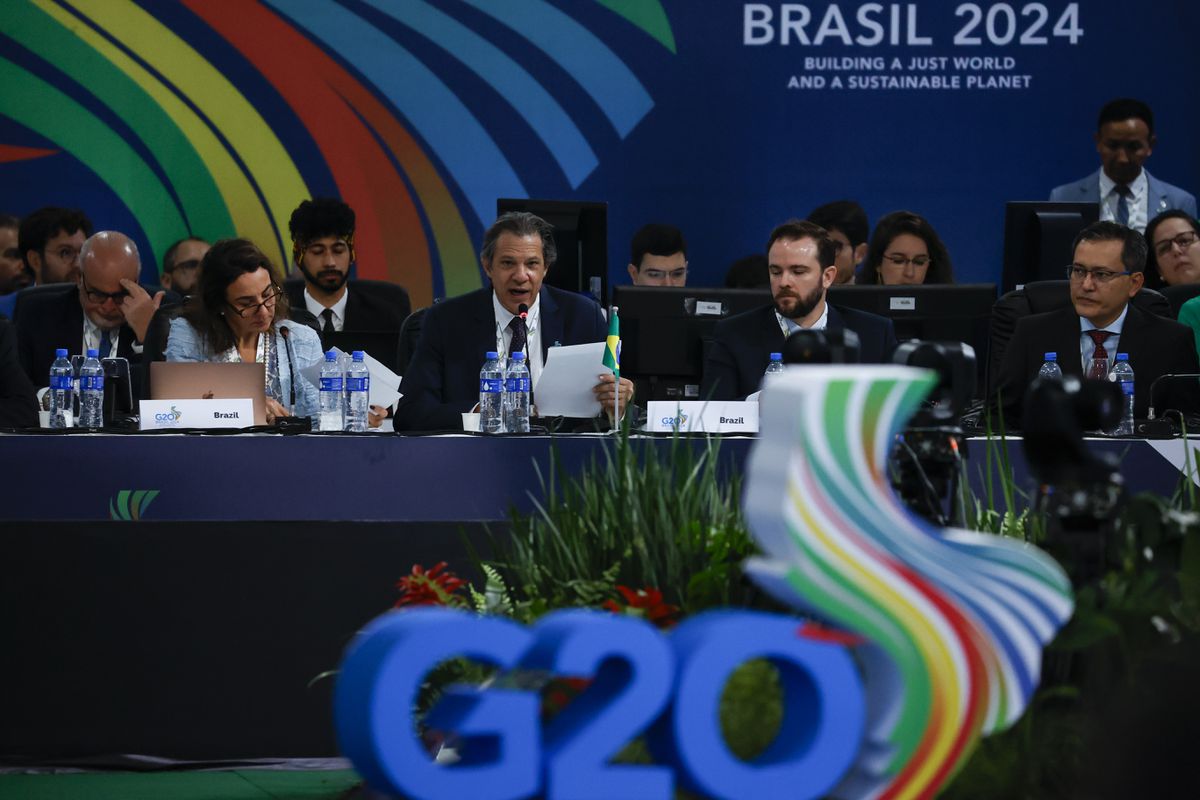A panel shows the evolution of the Ibex 35 on the Madrid Stock Exchange this Wednesday.Altea Tejido / EFE
Spanish multinationals pay in corporate tax an average effective rate of 17% of their profit on a global scale, well below the nominal rate in force in Spain of 25%.
This is reflected in
the second edition of the
report country by country
(
Country by Country Report
in English) published Thursday by the Tax Agency.
The study has been prepared with data relating to the year of 2017 and includes the information submitted by 112 groups and their 14,996 subsidiaries, 9,939 of them abroad.
Of these large companies, 22 paid an average effective rate of only 1.3%, despite the fact that their profits accounted for more than 25% of the total.
The report of the Tax Agency only takes into account multinationals that invoice more than 750 million euros worldwide, but it does not allow knowing the name of the companies that have presented the data or knowing in which countries their subsidiaries are located.
In total, these large groups paid 15,017 million in corporate tax on a global scale in 2017, compared to net profits of 88,398 million.
The result: an average effective supported rate of 17%, below the nominal 25% in force in Spain - 30% for banks and oil companies.
Spanish multinationals pay 12.6% of their profit worldwide in corporate tax
When going down to detail, the report nevertheless highlights a great “dispersion” of rates.
In 2017, 22 multinationals that accounted for more than 25% of the total profit only paid an average effective rate of 1.3%: they paid 313 million in corporate tax (2% of the total) compared to earnings of 23,522 million.
If the focus is broadened, more than half of the groups considered in the analysis, which generated 50% of global net benefits, assumed an average effective rate below 12.5%.
"The 57 companies with the lowest effective tax rates only represented 17.6% of the tax paid by the group as a whole, despite concentrating 50% of the profit," summarizes the note published this Thursday by the Ministry of Finance .
At the other extreme, 23 groups underwent pressure higher than the nominal rate, 31.7%, on profits of 28,949 million.
This is the second
country-by-country report
released by the Tax Agency.
The first was published at the end of 2019 with data relating to 2016, by virtue of the transparency commitments that Spain has assumed with the OECD (the Organization for Economic Cooperation and Development, a kind of
think tank
of rich countries) to stop the avenues of flight used by large groups to avoid taxes, transferring benefits to jurisdictions with less taxation.
The previous analysis was based on information from 134 multinationals and their 16,160 subsidiaries (67% of them abroad), which yielded a profit of almost 92,000 million.
The lower number of multinationals analyzed in the report published this Thursday is due to "statistical purifications", clarifies the Tax Agency, aimed both at solving "errors in the presentation" of information by companies and at eliminating duplications in cases in those that correspond to present the report in another country.
These data are published just when the EU has decided to resume the initiative for large companies to make public information on the benefits and taxes they pay in all the countries where they operate, given the huge gap that the pandemic has generated in public accounts .
One of the great problems for the States is the tax engineering that allows, especially the large groups that exploit the digital business, to transfer benefits to low-tax territories.
In parallel, the OECD continues to explore an agreement to design a
global
Google tax
, but its work was held back both by the health crisis and by the decision of the Donald Trump Administration to abandon the negotiations last year.
Meanwhile, several European countries, including Spain, have approved their own digital taxes, and Brussels has already announced that it will continue to advance in the creation of a
community
Google tax
if the Paris-based body fails in its objective.
Not comparable data
The Tax Agency clarifies that the Country-by-Country Report is not comparable with the other statistics it publishes nor is it intended to be used for a tax investigation.
The main difference is in the concept of profit.
The information published this Thursday uses the net profit, discounting the losses;
in the case of consolidated corporate tax accounts, gross profit is considered, which does not take losses into account.
For this reason, the agency points out, the tax rates that result in the Country-by-Country Report are higher than those that would result from using the concept of gross profit.




/cloudfront-eu-central-1.images.arcpublishing.com/prisa/DNMPMYRY3S5QCGBXIIUDFCL7MU.jpg)









